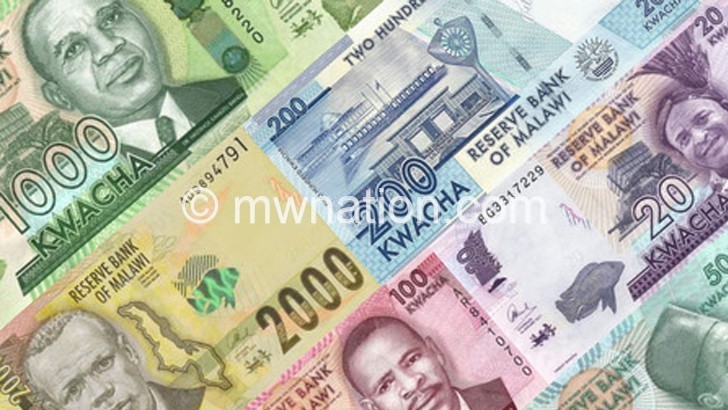Mixed fortunes for kwacha
The Malawi kwacha depreciated against most currencies of the country’s trading partners except the Indian rupee and the Zambian kwacha in December.
A published Reserve Bank December 2022 Monthly Economic Review shows that the local unit depreciated by 0.02 percent, 0.5 percent and 2.3 percent against the US dollar, the British pound and the euro to trade at K1 034.67 per US dollar, K1 282.60 per pound and K1 130.92 per euro, respectively.

The kwacha also depreciated by 2.8 percent and 0.3 percent against the Chinese yuan and South African rand and traded at K147.62 per yuan and K62.69 per rand, respectively.
Reads the report in part: “The depreciation of the kwacha against the US dollar, albeit marginal, reflected demand and supply imbalances on the local foreign exchange market.
“Meanwhile, the pound appreciated as a result of increased investor risk appetite towards the pound in the review month. Likewise, the euro gained strength on account of a drop in inflation in member countries due to falling energy import prices.”
RBM observed that the yuan gained value as the zero-Covid policy restrictions were lifted by Chinese authorities while the rand appreciated due to increased investor confidence in the South African economy following positive political news.
Meanwhile, National Statistical Office data indicate that merchandise trade balance for the review period worsened to minus K34.2 billion from minus K3.3 billion the previous month.
The outturn during the month under review was on account of a 53.4 percent drop in exports that outweighed a 26.3 percent decline in imports.
In an earlier interview, National Working Group on Trade and Policy chairperson Frederick Changaya said companies are paying a premium of over K450 per dollar, while the official exchange rate harbours at around K1 034.67 due to the worsening trade balance.
He said: “This trade balance situation isn’t a cause for celebration. It may not be a point to cry. Rather, we have to go back to the drawing board to review and strengthen trade and economic policies.
“This position should worry all well-meaning Malawians into corrective actions. For government, it is trade and economic policies. For people, it is what we consume more and more.”
Economist Edward Chilima said there is need to manage the import bill.





